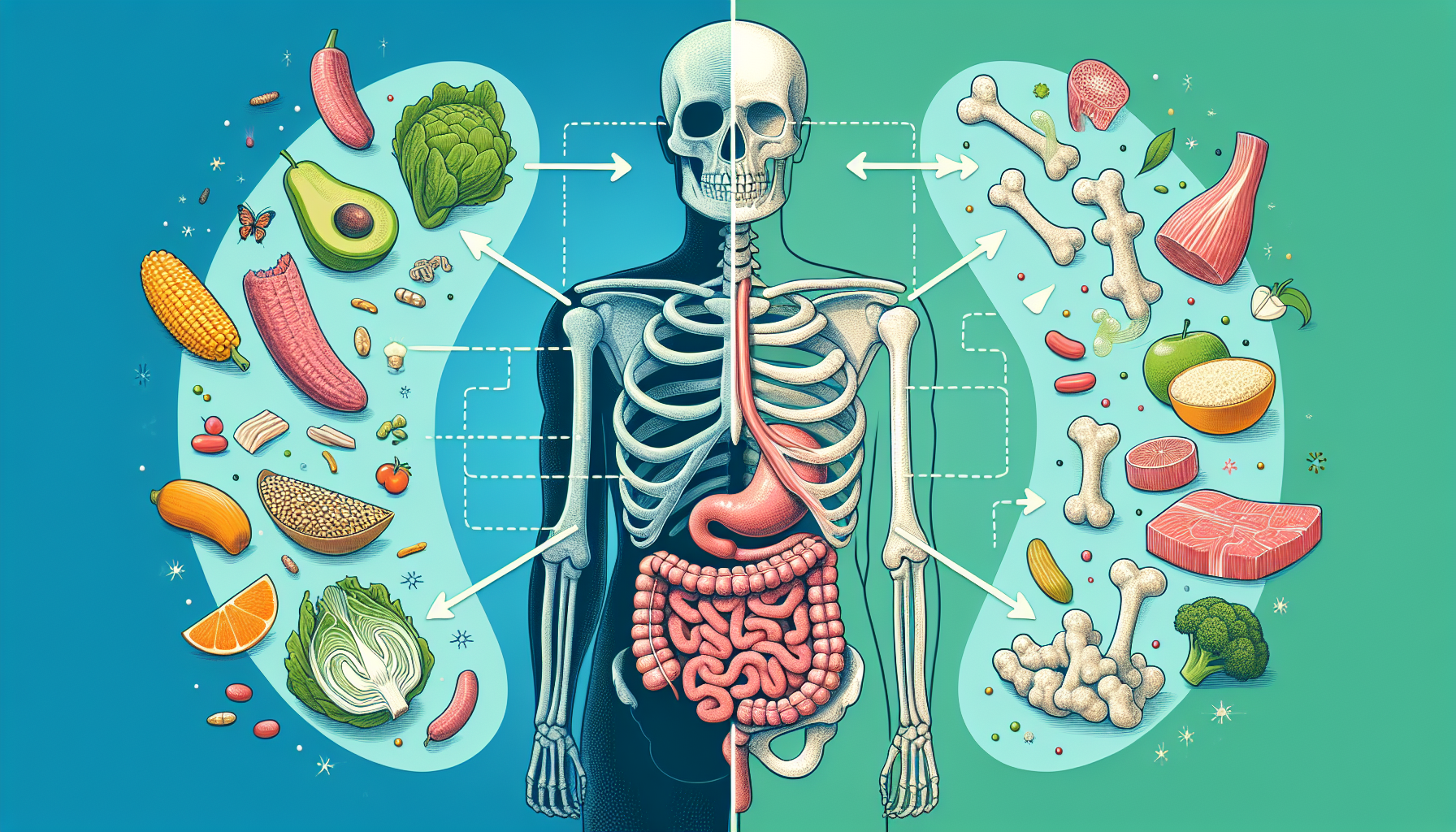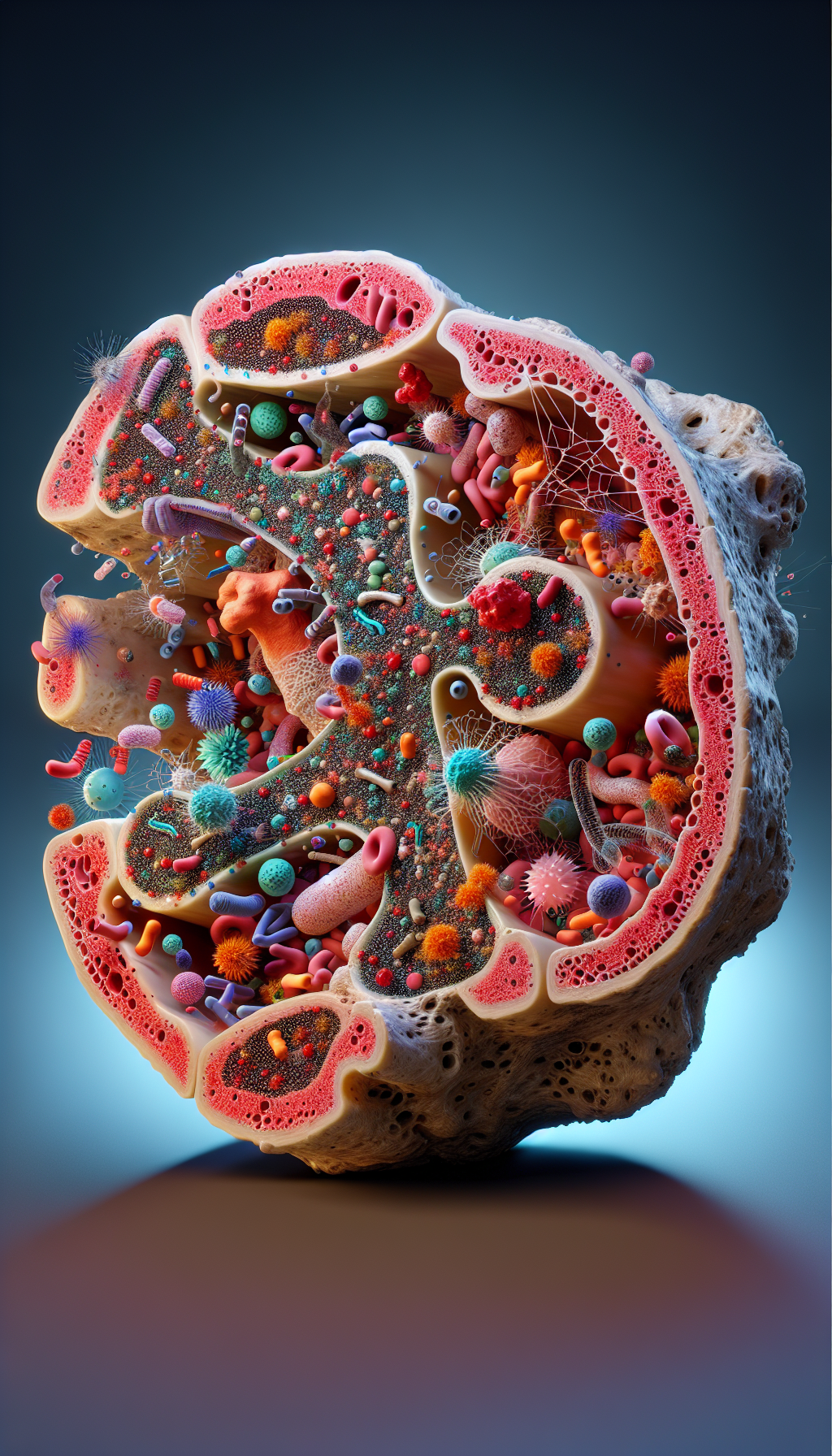The human body is an intricate ecosystem where various aspects of health are interconnected in ways that are still being understood. Among these connections, the relationship between gut health and bone density has emerged as a crucial area of study, shedding light on how the microbiome and nutrition affect our skeletal system. This article delves into the latest findings on this connection, offering insights and practical advice for maintaining optimal bone health.
The Gut-Bone Axis: A Symbiotic Relationship
The gut microbiome, consisting of trillions of bacteria, plays a significant role in overall health, influencing everything from immune function to mental well-being. Recent research has highlighted its impact on bone density, a measure of the amount of minerals, such as calcium and phosphorus, in a specific volume of bone.
Gut Microbiome and Nutrient Absorption
The intestines are the site of nutrient absorption, including those vital for bone health like calcium and vitamin D. A balanced gut microbiome facilitates the absorption of these nutrients, thereby supporting bone mineralization and strength. Conversely, an imbalance in gut bacteria can lead to malabsorption and potentially to bone-related issues.
For a deeper understanding of the importance of digestive wellness, consider exploring Digestive Health, which provides comprehensive insights into maintaining a healthy gut.
Short-Chain Fatty Acids and Bone Metabolism
Certain gut bacteria ferment dietary fibers to produce short-chain fatty acids (SCFAs), like butyrate and propionate. These SCFAs have been found to influence bone metabolism positively, promoting the activity of osteoblasts (cells responsible for bone formation) while inhibiting osteoclasts (cells involved in bone resorption).
Inflammation and Bone Health
Chronic inflammation, which can result from gut dysbiosis, has been associated with various health issues, including osteoporosis. The inflammatory response releases cytokines that can accelerate bone resorption, leading to decreased bone density and increased fracture risk.
Strategies for Supporting Gut and Bone Health
To harness the benefits of a healthy gut for bone density, consider the following strategies:
Diet Rich in Prebiotics and Probiotics
Incorporating foods rich in prebiotics (like garlic, onions, and bananas) and probiotics (such as yogurt, kefir, and sauerkraut) can help maintain a balanced microbiome, which supports bone health.
Regular Physical Activity
Exercise, particularly weight-bearing and resistance activities, stimulates bone formation. Moreover, physical activity can improve gut health by enhancing the diversity of the gut microbiota.
For further information on integrating exercise into your routine, "The Impact of Physical Activity on Bone Remodeling" offers a wealth of knowledge for readers seeking to understand the link between exercise and bone health.
Limiting Alcohol and Smoking
Excessive alcohol consumption and smoking can negatively affect both gut health and bone density. Reducing or eliminating these habits can thus contribute to a healthier gut and stronger bones.
Understanding the Complexities of Gut and Bone Health
While the relationship between gut health and bone density is evident, complexities remain. Genetic factors, age, hormonal changes, and environmental exposures also play significant roles in bone health.
Exploring the nuances of these factors can be enlightening. For instance, "Environmental Factors and Their Impact on Bone Health" delves into how external influences can affect our skeletal system.
The Role of Prebiotic and Probiotic Supplementation
In cases where dietary adjustments may not suffice, prebiotic and probiotic supplements can be considered to help balance the gut microbiota. However, it’s essential to consult healthcare professionals before starting any supplementation.
For those interested in herbal approaches to bone health, "Assessing the Benefits of Herbal Supplements for Bone Density" provides an in-depth look at natural supplementation options.
The Importance of Comprehensive Bone Density Assessments
Advancements in imaging techniques have enhanced our ability to assess bone health accurately. By understanding bone density levels, individuals can take proactive steps to address potential issues.
For the latest in diagnostic technology, "Advances in Bone Density Imaging Techniques" offers a closer look at the tools available for bone health assessment.
External Resources for Further Learning
The intricate relationship between gut health and bone density is a vibrant field of research. Here are a few niche resources for those interested in delving deeper into this subject area:
- The International Osteoporosis Foundation (IOF) provides detailed information on bone health and preventative strategies against bone loss.
- The American Gastroenterological Association (AGA) offers resources on maintaining gut health and the latest gastrointestinal research.
- The Gut Microbiota for Health Expert Panel (GMFH) presents expert insights into how gut microbiota affects various aspects of health, including bone density.
By integrating knowledge from these specialized resources with the practical advice outlined in this article, individuals can make informed decisions to benefit their gut and bone health. Remember, the journey to optimal health is ongoing, and staying informed is key to navigating it successfully.



